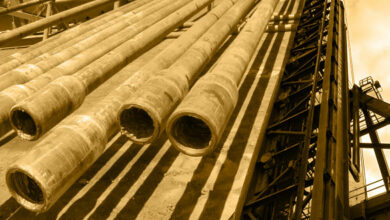To help the public understand essential role oil and gas plays, we must each become advocates

By Jeremy Thigpen, 2022 IADC Chairman
To achieve energy security, reduce energy poverty and meet the needs of a growing worldwide population, the world must responsibly and efficiently embrace and develop all energy sources. Despite what some people may think, attaining energy reliability and security demands a heightened investment in the production of oil and gas. As such, the drilling industry is, and will remain, essential to ensuring access to affordable, reliable energy sources that support shared prosperity, growth and innovation globally.
While we will undoubtedly see disproportionate growth in renewables, OPEC projections indicate oil will continue to have the largest share of the global energy mix until at least 2025, when its market share is forecasted to decline to about 28% from 30% today. During this same period of time, volumetric demand for oil is expected to increase by 13.8 million bbl/day to 104.4 million bbl/day, and by as much as 17.6 million bbl/day to 108.2 million bbl/day in 2045.
In a recent “Intelligence Matters” podcast by CBS News Radio, Daniel Yergin, the Vice Chairman of S&P Global, pointed out that oil, which was discovered in Pennsylvania in 1859 and Texas in 1901, didn’t overtake coal as the world’s No. 1 energy source until the 1960s. Even so, in 2022, the world uses three times as much coal as it did in the 1960s. Mr Yergin highlighted that while the political focus is clearly a transition toward global decarbonization, what we are actually seeing occur is an energy expansion, where all sources are essential to create a sustainable energy economy. He pointed out that if net zero goals are pushed too quickly, severe economic disruptions are likely.
In the context of strong demand for oil and gas across most regions of the world, there is a vital appreciation for the importance of energy reliability and security. Therefore, the recent, and sharp, increase in marketed rig utilization and dayrates are unsurprising; and, given the underlying fundamentals, it is clear that the drilling industry, and particularly deepwater offshore drilling, is in the vanguard of a sustained market recovery.
That said, challenges remain. A fundamental misunderstanding of the importance of oil and gas could lead to irresponsible and, potentially, detrimental regulation, bureaucracy and funding deficits that ultimately impede investment in technologies needed to achieve carbon footprint reductions, while delivering vital services. That’s why the advocacy of everyone working within our industry to further the public’s understanding of the benefits of oil and gas, and the essential role energy plays within national and global economies, is essential to ensure that we attract the next generation of talent, as well as the funding required to develop and deploy the technology needed to propel our industry forward.
The bottom line is straightforward: Investment in new technologies is, and will continue to be, essential if our industry is to provide more energy with lower emissions.
At Transocean, we continue to invest in and deploy new technologies to support safer, more reliable and more efficient operations, from our Smart Equipment Analytics “SEA” system to our HaloGuard personnel safety system. Beyond technology, we are also investing in our people by offering opportunities to expand our team members’ knowledge and expertise as careers grow and evolve.
While our industry possesses the distinct advantage of already employing some of the best and the brightest, this is an opportune time for us to attract even more smart, creative, committed and ambitious individuals to join us. The skill set required on rigs, for instance, has changed. Due to technological advances, robotics, remote operations, etc, opportunities on drilling rigs have become less physical and more technical than in the past.
The technical competencies of our crews is and will be key as our rigs become more advanced. For instance, at Transocean, we recently took delivery of one of two new eighth-generation drillships – the Deepwater Atlas – and we are approaching the delivery of the second, the Deepwater Titan. These will be the industry’s only two eighth-generation drillships, set apart by their ability to drill and complete 20,000-psi prospects with an industry-leading net 3-million-lb hoisting capacity.
It is undeniable that the drilling business is changing in exciting ways and the future is bright for those who are perpetual learners interested in joining a dynamic, versatile and innovative industry. I’m excited for what’s ahead for our industry. We are just scratching the surface of what’s possible as we continuously advance as technical leaders, and work toward producing more energy with lower emissions.
As an industry, we must keep innovating, we must keep advocating, and we must keep educating to attract new talent and the necessary capital for the future. Moreover, we must keep drilling to meet the global demands of a world whose economies and people rely upon the oil and gas we help produce each day. DC




